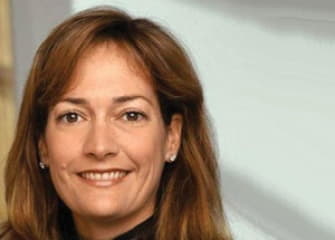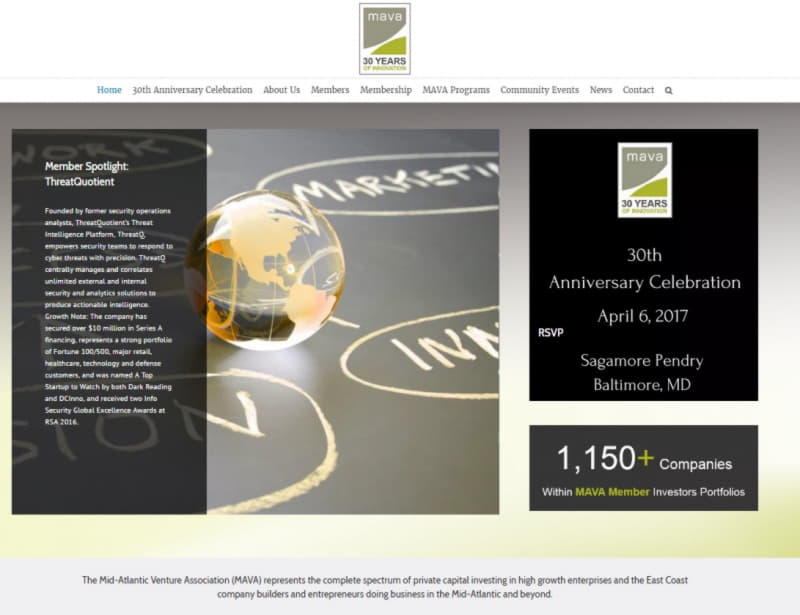
Julia Spicer
Julia Spicer has seen it all in the world of venture finance. For the past 15 years, as executive director at the Mid-Atlantic Venture Association, she has seen remarkable ups and downs, and profound changes in the world of venture finance, as she has charted out new ways to represent the collective interests of over 500 venture capital professionals from 100 funds with more than $100 billion in combined capital under management.
“At our core, obviously is the private investment community, which I think has changed quite significantly over the years,” she told citybizlist’s Edwin Warfield in an interview. “Then we used to have primarily institutional venture, we now have family offices, VC, angels, growth equity, private equity, fund to funds, family offices that are institutionalized in the way that they invest. So we have all kinds of hybrids also affiliated with us.”
One of the hallmarks of MAVA is “to always be on that very front end knowing that things are changing and how do you sort of change and try to deliver some things that are really newly needed in a marketplace for our constituents,” she also said.
Before she assumed the MAVA position, Spicer – a prestigious John Motley Morehead Scholar at the University of North Carolina at Chapel Hill – had accumulated over a decade’s corporate experience and tried her hand at entrepreneurship too, founding a satellite video conference business for GTE, and then running IntellEvents to back woman-owned or woman-run companies in Virginia.
EDWIN WARFIELD: Can you tell us about your career and your decision to join MAVA?
JULIA SPICER: I’m not sure that anything really fully sets you up for a job you take for as long as this one, but I do think ironically that things were aligned, and my background, which I didn’t know at the time fully how much it was going to help, was starting out as an entrepreneur right out of college. I was one of those, before it was even fashionable to be an entrepreneur, didn’t know enough to really know that that was a good thing to do. It just sort of happened. So I had my first business and started it actually in college and after college, for about four to five years, and then moved into a corporate role after having my own small company.
I was very entrepreneurial and that actually was an attribute at that time. They were looking for game changers in an old-line telecommunications company right at the height of the telecommunications industry. Wireless was really what I worked on most of the time. The emerging technology was amazing as an emerging technology when it so prolific today. I do think 10 years and 11 addresses in a corporate environment working with some of the leading technologies really seeded in me…really an appetite for technology and things innovative. I worked with federal laboratories - laboratories really where things were really being built - but also at the really dawn of mobility and its impact, if you will, on all things business so that was an exciting career.
When my company was purchased by Verizon or what became Verizon at the time, I decided to come back to this area, because I had spent so much time here, and co-founded another entrepreneurial business, if you will, with another partner and that was really as a give back. We really wanted to help open up financing for women-run businesses and women CEOs, they were $30 million and up kind of businesses. These were some significant businesses from up and down the eastern seaboard and California. So, that time in my career was a great give back, as we didn’t make any money, so I understand those entrepreneurs that come in and say it didn’t work! But it was really important work that we were doing.
EDWIN WARFIELD: When you became with MAVA, there were significant challenges? Can you tell us about the turnaround?
JULIA SPICER: I really wanted to get closer to the technology and ended up leaving that and moving over to Columbia Capital, which at the time was a venture fund specializing in communications. It was a little closer to my roots, but it also was a nice place where my investor relations and strategic planning business and my technology love really made a difference. I ended up using kind of all three of those tools that I think helped me - equipped me if you will - when I got a call about coming on board with MAVA, and I knew MAVA. I was actually a member of MAVA. So, I have been on both sides of the MAVA fence. I was a customer and a consumer, and I knew a little bit about what it did. I actually was a volunteer. MAVA has had a long history of tapping people in the community to volunteer and to serve, so I knew the value that engagement I knew the culture of that, and so it seemed at the time, it was a time I think when there was a lot going on, but in the sense it was a turnaround period and I had some knowledge of the industry. So, and I think, having had corporate experience helped and I think being entrepreneurial helped. With that I came on board and, really came on board because there were some terrific leaders at the time at MAVA and their involvement gave me great confidence that this was an organization that was primed and wanted to move up and grow and have an impact.
Connect with Julia on LinkedIn
Sponsored by: MAVA


Edwin Warfield, CEO of citybizlist, conducts the CEO Interviews.
If you're interested in reaching CEOs, please contact edwin.warfield@citybuzz.co
Connect on LinkedIn



































